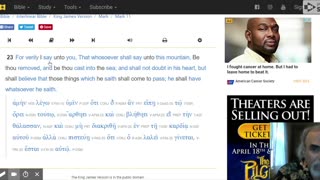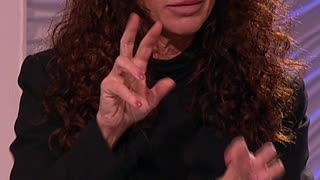Get More Out Of Your Bible Study
There are 10 predominant genres, or types of literature, presented within the bible. Each one of these genres needs to be read differently to grasp the full message God intends for us. This is part 1 of a series we will present to help you get the most out of your Bible study. See full text of this blog post below or Visit our website - https://radicalshepherdchristianministry.com/blog for this and other posts.
Check out our Christian Merchandise in our shop - https://radical-shepherd-ministry.creator-spring.com
Follow us now on Instagram https://instagram.com/radicalshepherd
Follow us now on Facebook https://facebook.com/radicalshepherdchristianministry
Follow us now on Twitter https://twitter.com/MinistryRadical
As we study the Bible, we need to recognize that it is not simply one big book. Many people realize that the Bible comprises 66 individual books, 39 books in the Old Testament and 27 books in the New Testament. Within these 66 separate books, we find ten predominant genres or types of literature; narrative, law, wisdom, psalms, and prophecy make up the main types of literature found in the Old Testament, and gospel, parables, acts, letters, and apocalyptic literature make up the genres found in the New Testament. Each of these various genres needs to be read differently if we want to understand the content and, therefore, receive the message intended for us in each book.
To give some examples of why we need to read these different types of literature in different ways, let’s consider two styles for the moment: parables and proverbs, or wisdom. Some people ask why Jesus was often speaking in riddles. These riddles, or parables, were intended for willing recipients who were open to seeing the meaning of what Jesus was saying. In the parables, information was presented in irrelevant ways to the discussion. By speaking to people in this way, Jesus knew that only those seeking the knowledge He was giving would get it. For those not seeking the truth in what He was saying, these parables were often seen as worthless nonsense. In this way, Jesus knew that only those genuinely seeking his message would receive His news of salvation. Sadly, those not seeking His message often walked away believing Jesus was a fool. While this may seem like Jesus was choosing who would receive salvation, this is not true. We need to remember that our purpose is to be in a relationship with God for all eternity. If we do not seek to be in that relationship, we won’t be and therefore miss out on eternal saving from our flawed human nature. Those choosing to see His message as nonsense were choosing their human understanding and therefore choosing for themselves to be excluded from eternal salvation. Therefore, knowing this is the way Jesus presented knowledge and understanding necessary to be in a relationship with Him, this is how we need to read the parables. Not by our knowledge but by actively seeking His purpose.
A vital verse to help us remember whose understanding is essential as we study the Bible is Proverbs 3:5, “Trust in the Lord with all your heart, and do not lean on your own understanding” (ESV). Proverbs is Old Testament Wisdom literature presented in much the same way. Time and careful attention are needed to get the messages delivered in Proverbs. While this post aims not to cover every genre of Biblical literature but to briefly help us understand how we should be reading various books, I will dive deeper into each type of literature on its own in the future. The more significant takeaway from this discussion is recognizing the importance of 66 individual books, each with their message and written in various styles, that all contribute to the one overall message of the Bible. Recognizing the univocal purpose and the individual lesson from each book is the only way to acknowledge the depth of the inspired word we read. Timothy made it clear that we need to be looking for both the individual messages as well as the overall teaching when he wrote, “All Scripture is breathed out by God and profitable for teaching, for reproof, for correction, and for training in righteousness.” (2 Timothy 3:16 ESV).
This post is an introductory discussion about getting more out of your Bible studies. In the next post for this series, we will look at eleven different things we want to look at to get the most out of our time learning from His word. Until next time….
Be radical for Jesus. He was radical for you! - God Bless
-
 9:55
9:55
Lion of Fire Ministries
3 years agoHow To Get The Most Out Of Your Bible Study | What Is A Good Way To Study The Bible?📖🔥 Short Version
862 -
 7:53
7:53
The Christian Corner Ministries
1 year agoHow to make the most of your Bible Study.
26 -
 11:04
11:04
pastorvladsavchuk
10 months agoHow Did We Get The Bible?
28 -
 9:04
9:04
Conspiracy Theory Facts
11 months agoHow Did we Get the Bible
244 -
 9:57
9:57
Lion of Fire Ministries
3 years agoGet The Most Out Of Your Bible Study | What Is A Good Way To Study The Bible? 📖🔥 Christian Video
631 -
 3:44
3:44
LSNT
1 year agoMaybe you should read YOUR BIBLE? That MIGHT WORK!
2101 -
 11:52
11:52
pastorvladsavchuk
10 months agoWhy You Should Read THE BIBLE
10 -
 35:10
35:10
For Such A Time As This
2 years agoRead the Bible with me| Bible Study| Matthew ch.8-10
64 -
 0:59
0:59
Pastor Melissa Scott, Ph.D.
9 months agoHow-To… How Do You Read the Bible?
804 -
 0:12
0:12
DcrypTos
9 months agoDO YOU READ YOUR BIBLE?
2